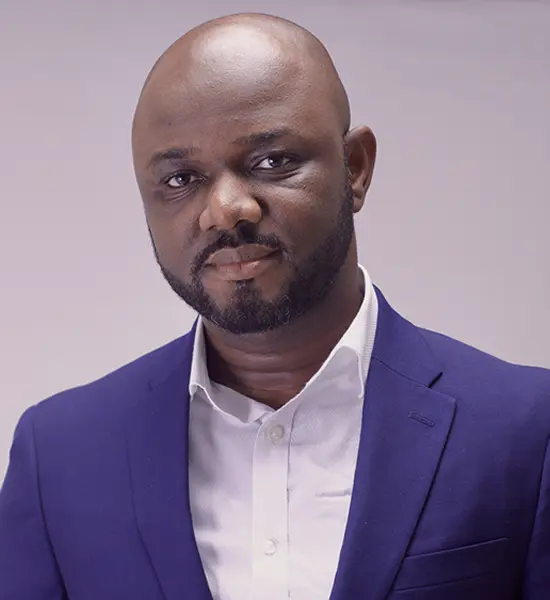The Executive Director of the Africa Center for Energy Policy (ACEP) Mr. Ben Boakye, has cautioned the government to look into Ghana’s power sector’s ongoing struggles with erratic power supply.
Mr. Boakye discussed the root causes of these frequent power outages and the overall deficiencies in the country’s power infrastructure, shedding light on the persistent issues that undermine reliable power delivery.
“Currently, we have some deficit in generation, which is not as significant as it was a couple of months back. We now have about 100–150 megawatts of load to spare.’’
Mr. Ben Boakye Executive Director of the Africa Center for Energy Policy (ACEP)
He pointed out that due to the deficit, power suppliers spread the load among various regions to avoid prolonged power outages, thus creating short, intermittent blackouts instead of full-day power cuts.
“Some of these low voltages may not be as result of the deficit; it could be a localized problem where maybe a transformer is overloaded because demand has gone higher than what a local transformer can actually [handle].”
Mr. Ben Boakye Executive Director of the Africa Center for Energy Policy (ACEP)
This results in brownouts and fluctuations in power, which are especially disruptive for businesses and can damage electrical appliances.
Impacts on Businesses and Household Appliances
“Some businesses cannot run at all because when the voltage is too low, you can’t run them. Productivity is affected [by] that kind of situation.’’
Mr. Ben Boakye Executive Director of the Africa Center for Energy Policy (ACEP)
Additionally, power surges and fluctuating voltages can harm household appliances. Mr. Boakye underscored the need for better communication with power suppliers so that citizens can manage and protect their electrical devices during power fluctuations.
Mr. Boakye attributed much of the problem to financial constraints within the sector. He explained that the Ministry of Finance should not be responsible for paying electricity bills, a situation that burdens the national budget.
“They are still waiting for some monies to be paid by the Ministry of Finance,” he noted. The sector’s reliance on government funds has led to rising debts, a situation worsened by inefficiencies and poor revenue collection.
“For the past years, we have been sacrificing the budget to actually pay for the inefficiencies in the sector.’’
Mr. Ben Boakye Executive Director of the Africa Center for Energy Policy (ACEP)
Mr. Boakye warned that the government’s lack of funds is exacerbating the issue. “The biggest challenge is that we are not raising enough from the power that we sell.”
According to Mr. Aboakye, the lack of liquidity has forced independent power producers (IPPs) to continue generating power on credit, hoping that the government will eventually pay off the debts.
Gas Supply Challenges

Mr. Boakye highlighted gas supply as another critical component of the power generation deficit. He noted that gas suppliers have reduced production due to non-payment, resulting in lower generation capabilities.
“In the past couple of months, we had ENI cutting gas production to the minimum contractual volume of about 171 MS Standard Cubic Foot (scf) per day when they could actually do about 240.”
Mr. Ben Boakye Executive Director of the Africa Center for Energy Policy (ACEP)
Mr. Boakye also mentioned that Ghana’s gas sources are becoming increasingly restricted, making it necessary to consider other options, such as gas imports from Nigeria or reviving the LNG (liquefied natural gas) ambitions that were previously shelved.
The Need for Efficiency in Revenue Collection
“The earlier we revisit that conversation of checks in the distribution side of the industry to make sure that power sold can be collected, the better.”
Mr. Ben Boakye Executive Director of the Africa Center for Energy Policy (ACEP)
He called for efficiency improvements, especially within the Electricity Company of Ghana (ECG), to enhance the sector’s sustainability. According to him, only by tackling inefficiencies can Ghana overcome the current challenges.
The prospects for immediate improvement are slim unless the government takes swift action to address the financial and operational inefficiencies plaguing the sector. Mr. Boakye summarized, “Without these measures, we will live with this problem for a long time.”
He further warned that the power sector’s financial structure should not depend on government intervention and called for a new approach to ensure long-term stability.
“We need to manage the power sector in a manner where we are not just racking up debt but building sustainable energy solutions for the future.”
Mr. Ben Boakye Executive Director of the Africa Center for Energy Policy (ACEP)
Mr. Aboakye’s insights revealed that while the current load-shedding approach provides temporary relief, long-term solutions demand robust policies to address inefficiencies and financial constraints.
READ ALSO; Gloria Sarfo Calls Out AMAA for Fake Flight Itinerary



















